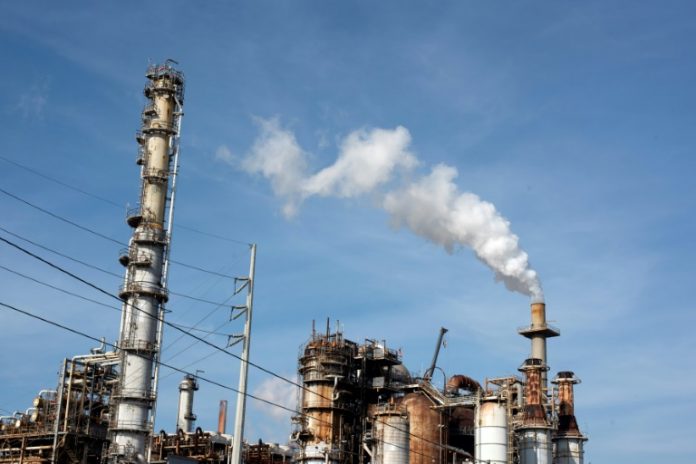US oil prices rebounded above zero Tuesday, a day after futures ended in negative territory for the first time as a coronavirus-triggered collapse in demand leaves the world awash in crude.
US benchmark West Texas Intermediate for May delivery was changing hands at $1.10 a barrel after closing at -$37.63 in New York.
The May futures contract expires Tuesday, meaning traders who buy and sell the commodity for profit needed to find someone to take physical possession of the oil.
But with the glut in markets and storage facilities full, buyers have been scarce.
Traders are now more focused on the contract for June delivery, which had trading volumes more than 30 times higher. That also rebounded Tuesday, rising to above $21 a barrel following a close of $20.43 a barrel in New York.
Brent crude, the international benchmark, was changing hands at $25.61 a barrel for June delivery, up 0.15 percent.
Oil markets have plunged in recent weeks as lockdowns and travel restrictions to fight the coronavirus around the world batter demand.
The crisis was worsened by a price war between Saudi Arabia and Russia. Riyadh and Moscow drew a line under the dispute and, along with other top producers, struck a deal to cut output by almost 10 million barrels a day earlier this month.
But prices have continued to fall as analysts say the cuts are not enough, and as storage facilities reach capacity.
US crude’s collapse Monday was triggered in part by the closely monitored WTI storage facility at Cushing, Oklahoma filling up, as well as traders closing out their positions before the expiry of the May contract.
“The WTI May futures contract is due to expire on Tuesday, forcing any holders of that contract to accept physical delivery,” ANZ Bank said in a note.
“With storage facilities filling up fast, particularly at the WTI pricing point, Cushing, there are fears that there will be nowhere to store it.”
Michael McCarthy, chief market strategist at CMC Markets, added that “the prospect of having to pay to sell crude oil provided a brutal reminder of the current unusual economic conditions”.
















